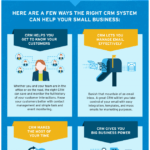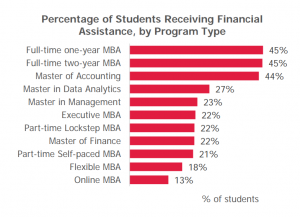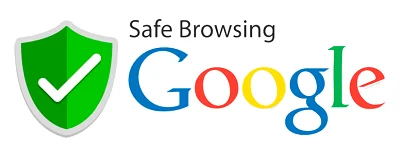Pursuing an MBA can open doors to a world of career opportunities, enhance earning potential, and expand professional networks. However, the hefty price tag associated with these programs is often a significant deterrent for many aspiring individuals. In this article, we will delve into the intricacies of MBA program costs, examining the factors that influence tuition fees and other expenses, and providing a comprehensive breakdown of the financial implications involved in obtaining this coveted degree. Understanding the true cost of an MBA will empower you to make informed decisions about your educational investment and plan your finances accordingly.
How Much Does an MBA Program Typically Cost?
Tuition and Fees
The cost of tuition and fees for an MBA program varies significantly depending on the school, program, and location. Top-tier business schools, such as Harvard Business School or Stanford Graduate School of Business, typically charge higher tuition than other schools. Full-time MBA programs generally cost more than part-time or online programs.
| School | Tuition and Fees (per year) |
|---|---|
| Harvard Business School | $77,000 |
| Stanford Graduate School of Business | $77,000 |
| Wharton School of the University of Pennsylvania | $77,000 |
| University of Chicago Booth School of Business | $77,000 |
| Columbia Business School | $77,000 |
Living Expenses
In addition to tuition and fees, living expenses can also contribute significantly to the overall cost of an MBA program. These expenses include housing, food, transportation, and personal expenses. Living expenses vary widely depending on the location of the school. Cities with a high cost of living, such as New York City or San Francisco, will have significantly higher living expenses than other cities.
| City | Estimated Monthly Living Expenses |
|---|---|
| New York City | $3,000 – $5,000 |
| San Francisco | $3,500 – $6,000 |
| Chicago | $2,000 – $3,500 |
| Boston | $2,500 – $4,000 |
| Philadelphia | $1,500 – $2,500 |
Other Costs
There are a number of other costs associated with an MBA program, such as application fees, books and materials, and travel expenses. Application fees can range from $25 to $200, while books and materials can cost hundreds of dollars per year. Travel expenses will vary depending on the location of the school and the student’s home address.
| Expense | Estimated Cost |
|---|---|
| Application fees | $25 – $200 |
| Books and materials | $500 – $1,000 |
| Travel expenses | Varies depending on location |
Breaking Down the Cost of an MBA
Tuition Fees
MBA tuition fees vary significantly depending on the school, location, and program format. Top-tier programs often have the highest tuition, but they also offer scholarships and financial aid packages. Online programs generally cost less than traditional programs, but they may have additional fees for materials or technology.
Living Expenses
Living expenses for MBA students include housing, food, transportation, and entertainment. These costs can be high in major cities where MBA programs are often located. Students can minimize these costs by choosing affordable housing options, cooking at home, and taking advantage of campus resources.
Program Fees
In addition to tuition, MBA programs may charge fees for various services, such as application processing, course materials, and student activities. These fees can vary from a few hundred dollars to several thousand dollars.
Opportunity Cost
The opportunity cost of pursuing an MBA is the income that students could be earning if they were working instead. This is an important factor to consider, as it can significantly impact the overall cost of the program.
Financial Aid and Scholarships
Many MBA programs offer financial aid and scholarships to help students cover the costs of their education. These resources can come from the school, corporations, or external organizations. Students should research available options and apply for any scholarships for which they qualify.
Frequent questions
What is the average cost of an MBA program?
The average cost of an MBA program varies widely depending on the school, location, and program format. However, a good starting point is to consider the following:
Full-time, on-campus MBA programs: These programs typically cost between $50,000 and $200,000 for the entire program.
Part-time MBA programs: These programs tend to be more affordable, with average costs ranging from $30,000 to $100,000.
Online MBA programs: Online MBA programs can vary greatly in price, but they generally fall within the $20,000 to $100,000 range.
It’s important to remember that these are just averages, and actual costs can be higher or lower depending on the specific program. Be sure to research individual schools and programs to get an accurate idea of tuition and fees.
What factors contribute to the cost of an MBA program?
Several factors can influence the cost of an MBA program, including:
School reputation: Prestigious schools with strong reputations tend to have higher tuition rates.
Location: Programs in major metropolitan areas are often more expensive than those in rural areas.
Program format: Full-time, on-campus programs are generally more expensive than part-time or online programs.
Program specialization: Specialized MBA programs, such as those in finance or healthcare, may have higher tuition rates.
Living expenses: If you are attending a full-time, on-campus program, you’ll need to factor in the cost of housing, food, and other living expenses.
Fees and other expenses: In addition to tuition, there are other expenses associated with an MBA program, such as application fees, textbooks, and program materials.
By carefully considering these factors, you can develop a more accurate understanding of the overall cost of an MBA program.
What are some ways to finance an MBA program?
There are various ways to finance an MBA program, including:
Loans: Federal and private student loans are common sources of funding for MBA programs.
Scholarships and grants: Many schools offer scholarships and grants to MBA students, based on academic merit, financial need, or other factors.
Employer sponsorship: Some employers may sponsor employees who want to pursue an MBA, either by paying for tuition or offering tuition reimbursement.
Savings: If you’ve been saving for your MBA, you may be able to cover a portion of the costs.
Part-time work: Working part-time while pursuing your MBA can help offset some of the financial burden.
It’s recommended to explore multiple funding options to find the best fit for your individual situation. Some students choose a combination of loans, scholarships, and savings to finance their MBA education.
Are there any scholarships or financial aid available for MBA programs?
Yes, many scholarships and financial aid opportunities are available for MBA programs. Here are some common sources:
School-specific scholarships: Most MBA programs offer scholarships to their students, based on factors such as academic merit, financial need, leadership potential, and diversity.
External scholarships: Many organizations offer scholarships for MBA students, often focused on specific industries, demographics, or areas of study.
Government grants: Federal and state governments offer financial aid programs for graduate students, including MBA students.
Corporate scholarships: Some corporations offer scholarships to employees or individuals pursuing MBA programs in fields relevant to their business.
To find scholarships and financial aid, start by researching the specific MBA programs you’re interested in and checking their websites for scholarship opportunities. You can also use online scholarship search engines and consult with your school’s financial aid office.












